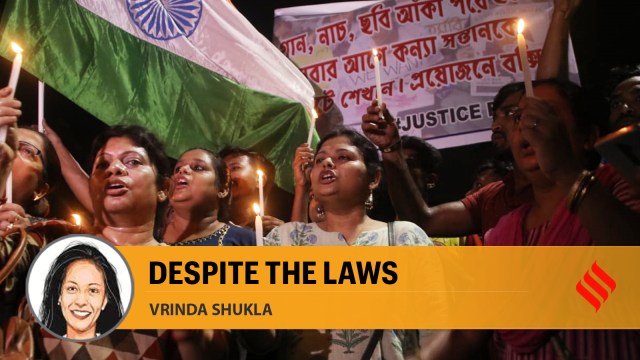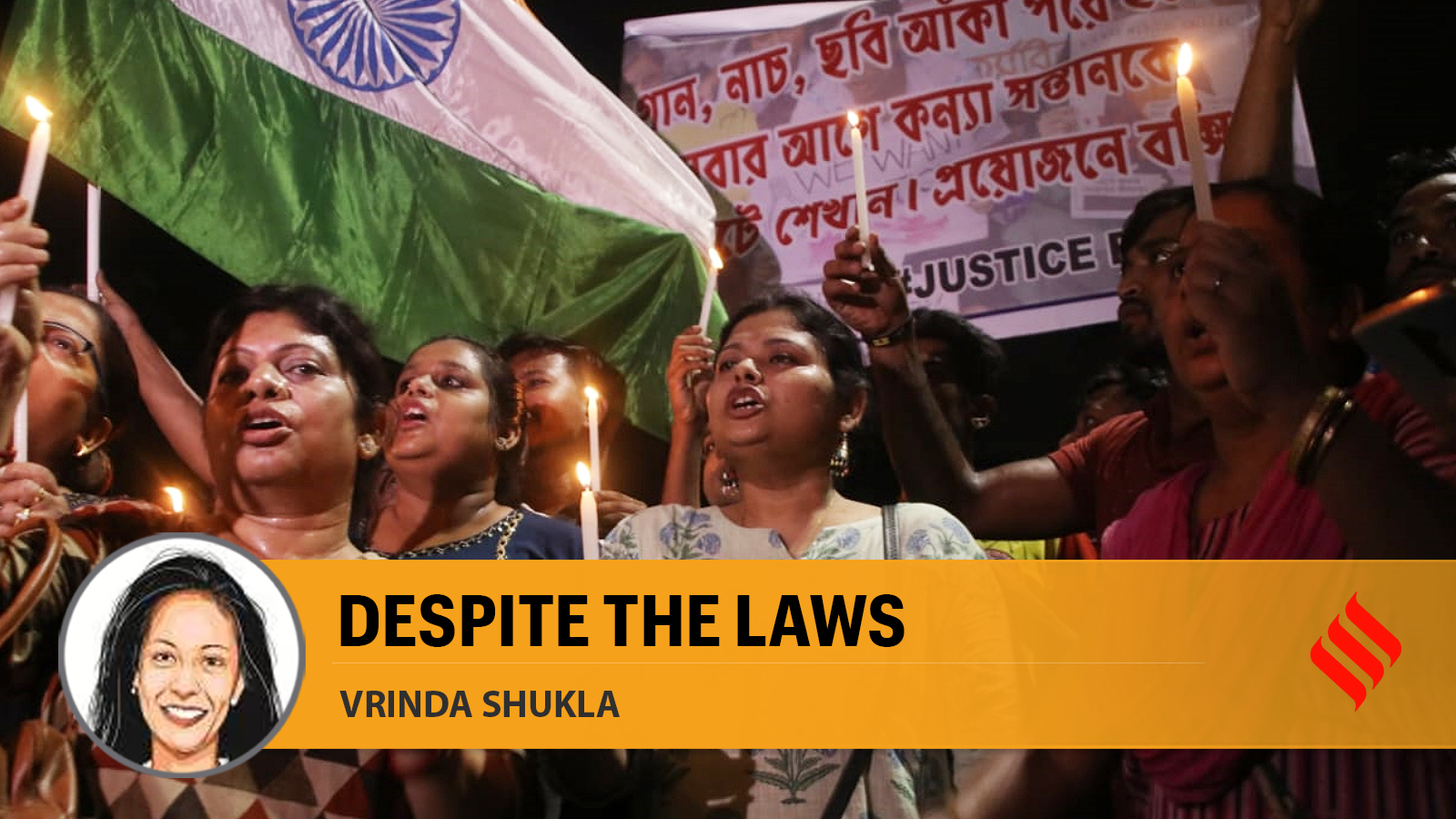
“I am not Nirbhaya. Neither was she… We are all scared of all men all the time,” read a post on X , following the ghastly rape and murder of a young doctor in Kolkata.
Ever since the infamous gang rape that rocked the country in December 2012, much has been done to strengthen the laws on rape. Where then lies the malaise? Why is the law failing to act as a sufficient deterrent? One answer is that laws on rape cannot be examined in isolation and be expected to regulate men’s mentality. Men’s brutalising of women continues to be rampant because of the laxity in laws surrounding other equally heinous crimes, which warrant immediate and equal attention as rape.
As per the statistics of 2022, annual dowry deaths in India stand at 6,516 — claiming one victim every 90 minutes. A dowry death is the unnatural death of a married woman who is murdered or commits suicide because of continuous cruelty by the husband and his family. What is more distressing than the large number of victims is the pitiably low conviction rate in such cases due to the shocking norm of the accused paying “blood money” to the victim’s family. Such “compromises” are routinely allowed by the police and the courts.
Domestic violence is undisputedly the most underrated crime perpetrated against women across all socio-economic strata. The relevant sections of the law prescribe a punishment of up to three years of imprisonment, rendering it nearly impossible for the police to arrest the accused. A victim oblivious to legal complexities will be dismayed to find the police or court release her tormentor the same day, nonchalantly citing the threshold rule of bail not jail for offences that entail a punishment of less than seven years.
Similar is the case with other serious sinister crimes like stalking or harassment. The lax bail norms pose a serious impediment to correcting and curbing the criminal instincts of the accused before they graduate to committing bigger crimes. Women complainants often narrate the common ridicule of their aggressors: “What can you do against me?”
It is no surprise, therefore, that the first accused apprehended in the Kolkata case had a history of violently assaulting his wife, including when she was three months pregnant. Yet, there was no appropriate legal response at the time despite two complaints. Condoning any act of violence against women or diluting its severity helps reinforce a culture where men are emboldened to believe they can get away with anything.
A serious legal response to women’s safety must entail a review of the complete spectrum of crimes against them in order to truly inculcate society’s intolerance to any form of abuse. Graded penal provisions are required depending on the severity of the crime. Forcibly disrobing a woman or stubbornly stalking her with the intention of committing sexual assault cannot be dealt at par with milder versions of “harassment”. The victim must not be made to wait for the potent penal sections to kick in till she is raped.
A liberal bail regime cannot be sustained independent of other judicial reform. Of the 3,449 cases of dowry death cases disposed off by the courts in 2022, 64 per cent were disposed of without a trial and only 35 per cent of the tried cases resulted in a conviction. Of the staggering 85,2598 cases of cruelty by husbands pending trial, a mere 7.7 per cent were disposed off, of which 87 per cent were disposed of without a trial. Then we wonder why men have no fear of the law.
There is a crying need to develop a criminal justice system equipped to investigate and try cases of crimes against women in a fast-track mode. Where protracted trials remain a stubborn challenge, a long enough incarceration, depending on the severity of the particular crime, is the only available tool to instil a fear of the law. The Courts must crack down heavily on extra judicial compromises forced upon victims because of the tedium of the legal process or a brazen socio-cultural sanction to the compounding of such cases. Until then, we will continue to harbour and embolden abusers.
The writer is an IPS officer serving as SP Bahraich, Uttar Pradesh. Views are personal
© The Indian Express Pvt Ltd
First uploaded on: 21-08-2024 at 07:05 IST



